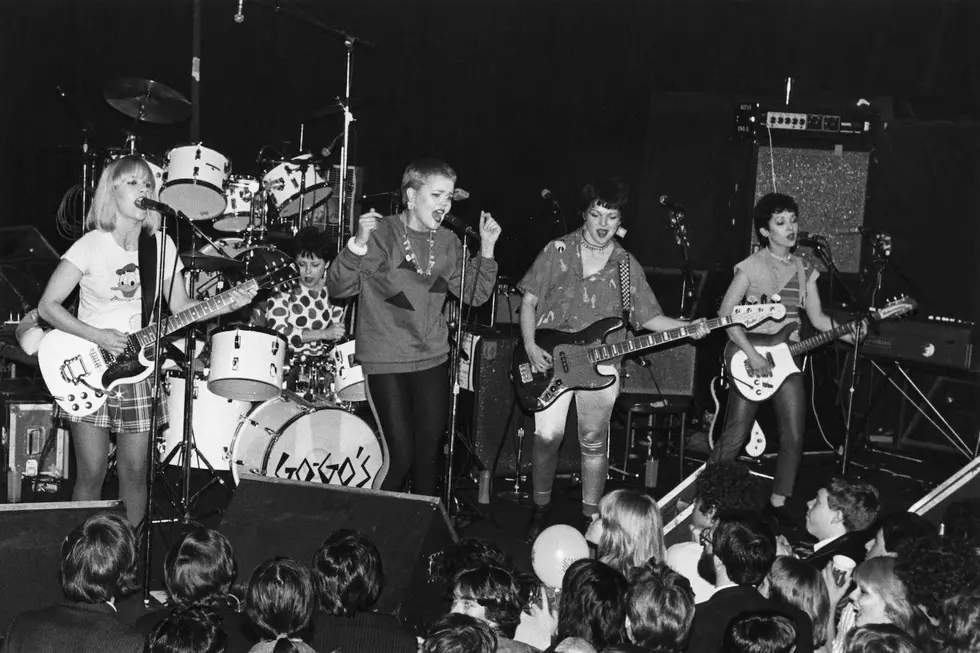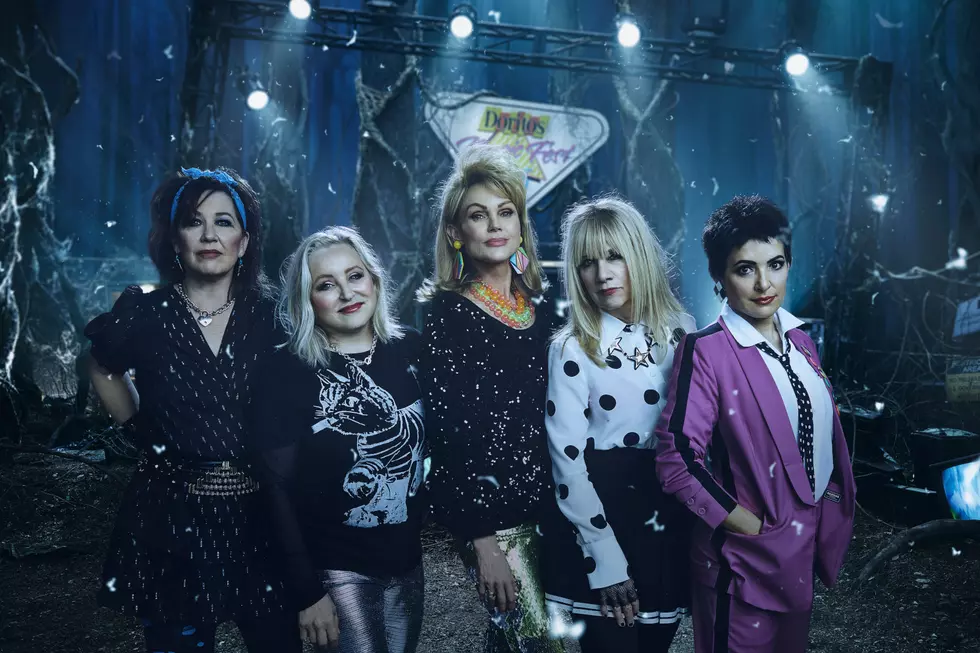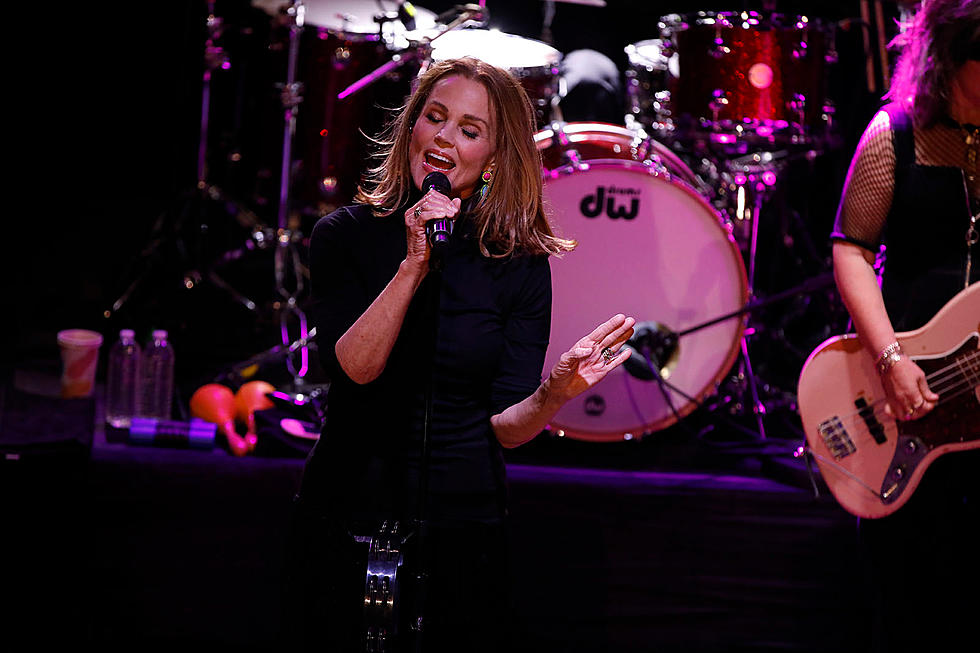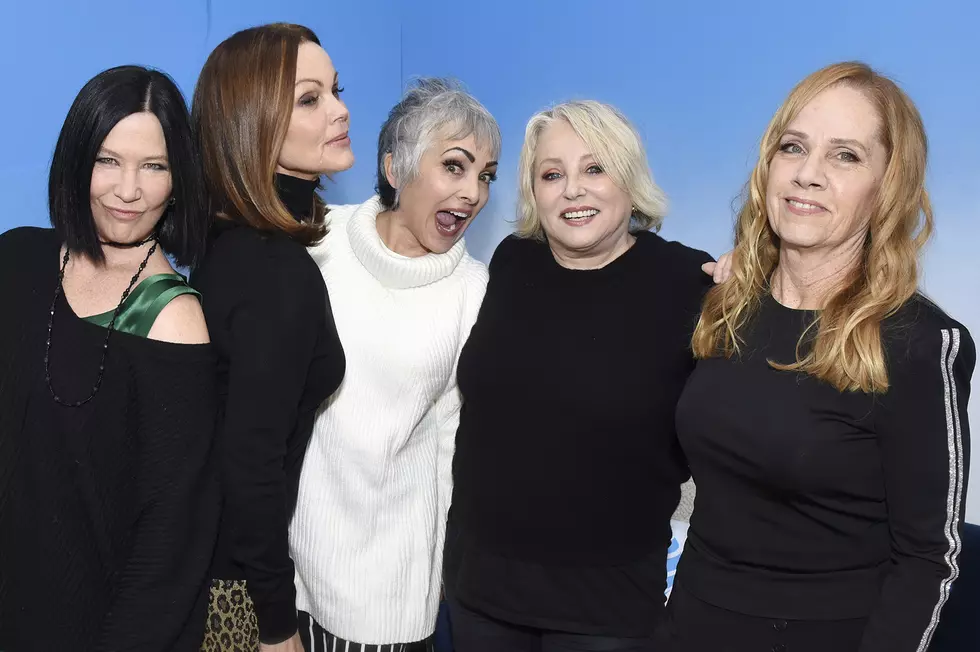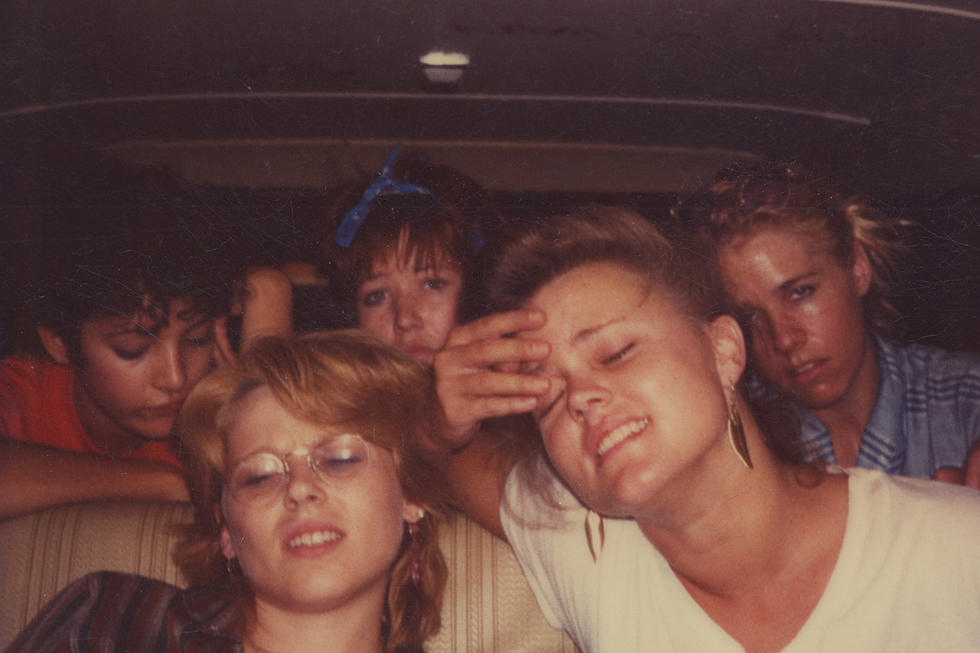
How Gina Schock of the Go-Go’s Got Hooked on Rock ‘n’ Roll
When the Go-Go's are inducted into the Rock & Roll Hall of Fame this weekend, it represents a significant milestone for the Los Angeles band, which is still adding new chapters to its story more than 40 years after the members first got together.
The Rock Hall statue will go on the shelf next to a number of previous awards. But perhaps their most significant achievement is becoming the first all-female group to write its own songs, play its own instruments and have a No. 1 album with 1982's Beauty and the Beat. Four decades later, the Go-Go's remain the only woman band to do so.
Drummer Gina Schock has a new book, Made in Hollywood: All Access With the Go-Go’s, which takes stock of the group's history from a fan's perspective. From her earliest days as a young music obsessive, she was attending concerts by almost anyone you can name from the golden era of classic rock.
The spunky Baltimore native was there to see the Who and Led Zeppelin at her first concert, followed by Black Sabbath as her next one. The ticket stubs pile high from that point.
Schock shares some of her best concert tales with UCR, along with memories she accumulated as she was attending shows and meeting some of her favorite artists.
Your first concert is Led Zeppelin opening for the Who at the Merriweather Post Pavilion in 1969. As a drummer, you must feel so fortunate that you were able to see both John Bonham and Keith Moon.
Oh, my God. How lucky was I? I didn’t even realize it at the time. Of course, I was only like 11 or 12 or something like that. That really did blow my mind, seeing that. The two finest bands on the planet. That was Zeppelin’s first journey to the States, opening for the Who. My brother took me to that show. I remember just my mouth was hanging open the whole time. Even at 11, I mean, I loved Led Zeppelin, I loved the Who. I had their records, and as a kid to see that [was unbelievable]. The Merriweather is not real big. It’s like six or seven thousand, I believe. With the grass seats, maybe it’s 12 or something.
That really, I think, was a big changing point in my life where I really decided - although I don’t know how much you can decide at the age of 11 - but I really did decide that’s what I wanted to be. I wanted to be up on that stage. I wanted to do what they did. Of course, I never thought about gender. Is it better to be a guy to be up onstage? Is it going to be a deficit being a woman getting up onstage? It’s weird, those things entered the picture many years later, but nonetheless that was a big part of what was happening during the ‘70s and ‘80s
Your next concert was Black Sabbath.
I loved Black Sabbath, they were one of my favorite bands. That first record was incredible and then Paranoid. I’m still a Black Sabbath fan. I love the entire band. I thought they were all so good-looking. To see them play live at that point in time, they were really rockin’ hard. They were all young and had a lot of energy. They were rockin’ hard at the Baltimore Civic Center, and that was yet another concert that it was, like, Okay, this is what I want to do! I know what I want to do now. Here’s the second concert I’ve been to, and it’s just getting better and better. This is my kind of life. This is what I want. I was so hooked.
Do you have any good anecdotes about seeing ZZ Top and Alice Cooper?
I did meet the guys in Alice Cooper. I met them and took pictures with them. I have photos of them. I was taking pictures of bands. When I would go to see them after the show, I would go across the street to the Holiday Inn, and that’s where they stayed, right across the street from the Baltimore Civic Center. I got hip right away. Forget about waiting in the lobby, because they’d kick you out. I figured out what you would do is you’d go around to the parking area, and you’d go up the service elevator. It would always be me and a girlfriend from school or whatever. We’d go up the elevator, and you stop at any floor. You get on the house phone and always ask for the drummer or the bass player. They usually had their real names registered, whereas most of the time, the lead singer had a different name.
I would always ask for the drummer, and they’d give you four digits. The last three digits was the room number. So then I’d just take the number and go rap on the door and say, “Can I take your photograph?” Nine out of 10 times they’d say sure. Then I’d get to talk to them and tell ‘em, “I’m going to be a rock star one day.” I mean, it was such a thrill. But I had that all down, man. I met the guys in Alice Cooper on the Billion Dollar Babies tour. I met the tour manager, and then he got me to come upstairs and I got to meet a couple of the guys. I got Alice to sign the inner sleeve cover [of the album] with the baby and all of the money around the baby. I got him and everyone in the band to sign that. I remember having a conversation with the bass player, Dennis Dunaway. He was really a nice guy. He was kind of spooky looking, but he was really nice. I have lots of these kinds of stories of meeting people.
I didn’t get to meet the ZZ Top guys, but I remember my first time seeing them at the Baltimore Civic Center, once again. I could take a bus, and it would drop me off right in front of the [venue]. When they came out, on either side of the stage, they had these huge cages. They had big fuckin’ bulls in these cages, longhorns. The moment when they unveiled them, everybody went nuts. [Laughs] That’s fuckin’ crazy! Shipping them around the country with you, you know? I have photographs from that concert.
This book proves that a picture really is worth a thousand words.
I was hooked on photography. I knew that was something I really, really loved. I’m a very visual person. I thought, This is something I’m going to keep doing. I’m going to save up and try to get a better camera. I loved taking photographs. Now, in retrospect, wow, that was a smart move! I didn’t even realize that one day my resume will read, “Photographer, Author, Musician, Songwriter,” all of these things. You surprise yourself.
Watch the Go-Go's Perform 'Our Lips Are Sealed' on 'Solid Gold'
What was it like meeting Kiss on Solid Gold?
I didn’t get to know them back then when we first met them. Solid Gold was the who’s who in the music business. Everybody did Solid Gold. We did it so many times. The funniest thing I remember about Solid Gold is that the face makeup they put on you made you look orange. I don’t know if it was the cameras or what it was about, but everybody had an orange face on that show. Then of course there were the Solid Gold dancers that were hysterical. I mean, we would just get hysterical at their little choreographed moves with our songs and all.
But the guys in Kiss were very nice. I did get to hang out a bit later. We were rehearsing at the same place in L.A. I’d hang out with Gene [Simmons], and he was sort of like our godfather. He was telling us, “Oh, here’s where you need to invest your money” and trying to look after the girls. He was also interested in maybe doing a TV show with us and invited us over to the house. [It would have been] a reality show, kind of like The Osbournes, I would imagine [with them] following us around day-to-day with cameras.
Gene was Gene. He knows it's all a schtick, and he’s just a nice guy. He’s cool. Paul [Stanley] is really awesome, too. Paul’s a very nice fellow. The other two guys, I never really got to hang out with them - Ace [Frehley] and Peter [Criss]. I never really knew them.
I was happy to see so much attention given to the Talk Show sessions in your book. I think that album is underrated.
I do, too. I love that record. Jane [Wiedlin] says she can’t stand to listen to it because it reminds her of bad things, but we each have our individual experience. All I know is that I love that record, and I loved working with Martin Rushent. He was a brilliant guy and a wonderful fellow. We spent a lot of time in the studio telling stories and hanging out, and working on the record. There was a lot of stuff going on, and people were leaving and there was some crazy shit going on. That was the height of the drug intake in the band. Everybody had a lot of money, so somebody would just fuckin’ leave and fly back to the States. You’d call management: “Where’d so and so go? Where are they? Well, you’d better find them, because they need to get in and do their parts. We’re waiting on them. It’s holding up the record.” That kind of stuff. That stuff happens. People are human, you know?
In that period of time, it was very different for everyone in the band. But I just wanted to keep things together, and I was trying my damnedest to just stay focused and do whatever I could to help things move forward. Martin was full of great stories, like about Marc Bolan [of T. Rex]. He would tell me about how when Marc Bolan would come in for sessions, he would bring cases of champagne with him. He said he actually hung out with him over a 24-hour period where they were doing blow and everything, but he said Marc also drank a whole case of champagne, and he could not believe it. I love Marc Bolan, and I love T. Rex. They’re one of my all-time favorite bands. So I was like, “Any stories you can tell me.” Because I’m the ultimate fan. I want to hear any stories about anybody.
You also got to sit behind Charlie Watts' drum kit.
That really was the thrill of a lifetime to sit behind his drum kit and just sit and look from his perspective. He had a small kit, but the best part about that, which I tell in the book, was the drum tech telling me about the rug. The rug would cost a fortune, and the drums were a pittance compared to what he paid for the rug that they were sitting on. I always say that is so Charlie Watts. That’s exactly how I would expect that guy to roll. I’m still sad about [the death of] Charlie Watts. It’s hard to believe that he’s not in our world anymore. He was just so rock solid in everything. Everybody else in the band could be goofy and crazy, and lose their shit, but Charlie Watts was the rock. Frankly, I just can’t see the band without him.
John Bonham and Charlie Watts were two reasons that I wanted to start playing drums. I felt like they were my teachers growing up, putting on headphones and playing with the records when I’d come home from school every day. I was playing with all of my favorite bands, playing all of my favorite songs. That’s how I taught myself to play. But Charlie Watts and John Bonham - two completely different styles. But they moved me, I love them both. What they did was completely different, but wow, what a difference it made for me to hear them play. It was such a thrill to actually go back and sit on his kit and hearing him play, and dissecting what he would play. John Bonham, the same thing. It was part of my growing up, and when I think about it now in retrospect, it makes me smile. I just feel like, in general, so lucky to have grown up when I did in the music scene that was happening. The ‘70s music was so awesome, ‘80s music was so awesome. It was a great time for music.
Top 40 New Wave Albums
More From KOOL 101.7

